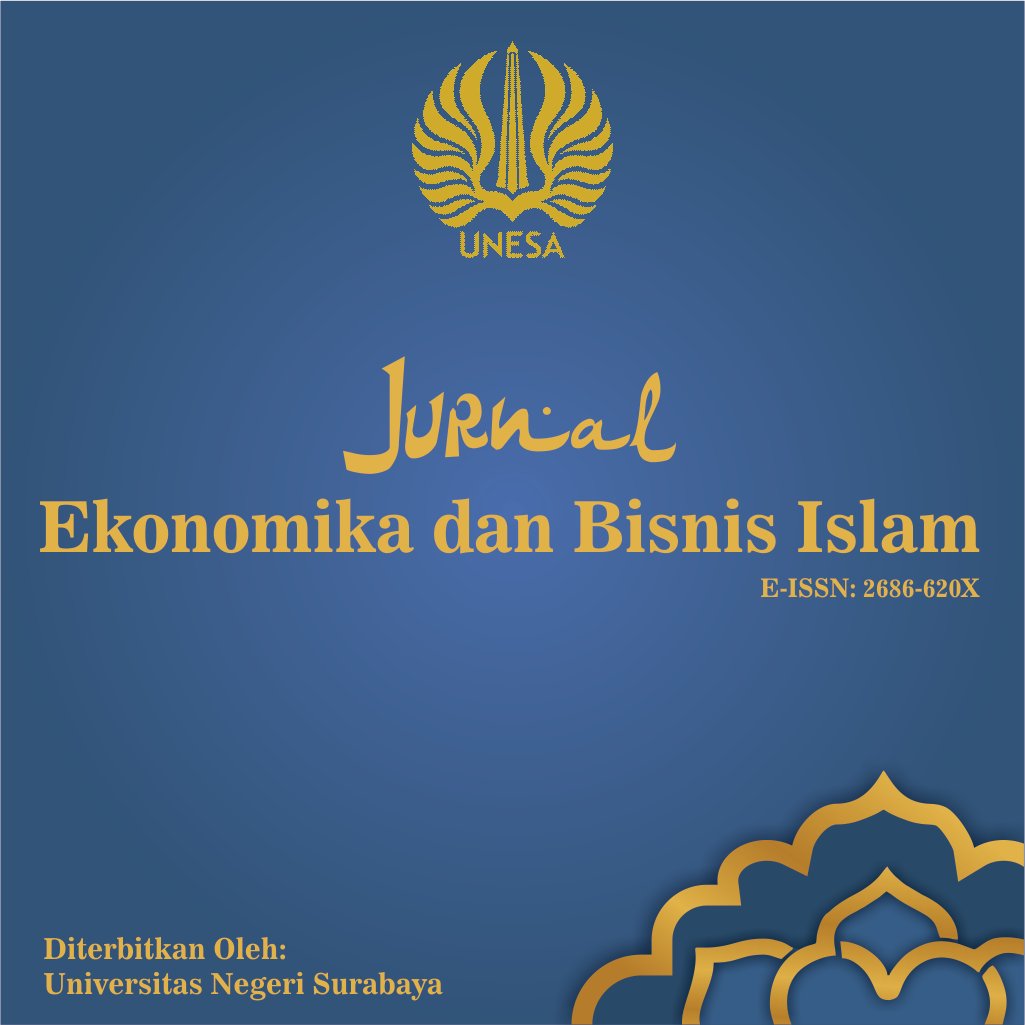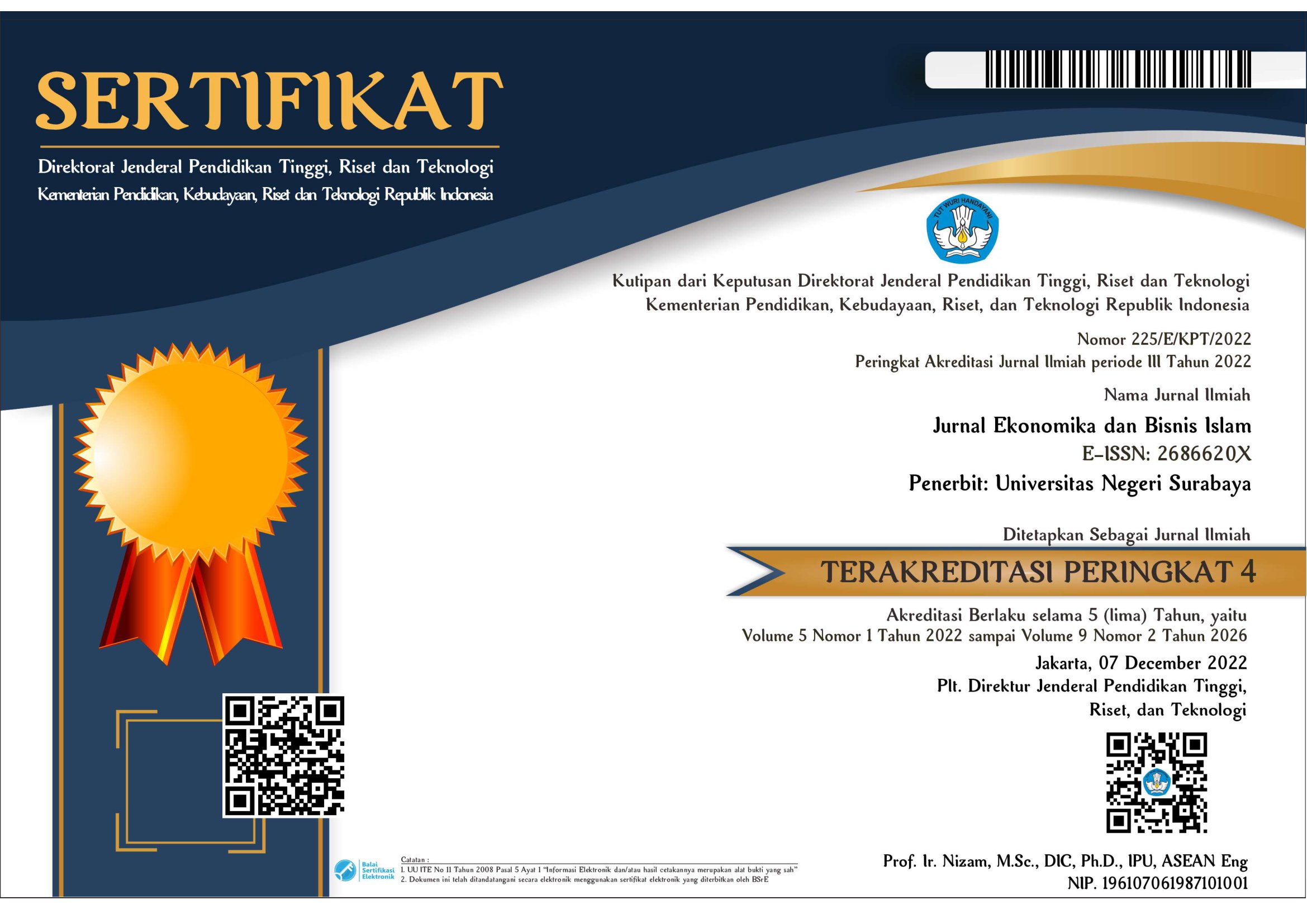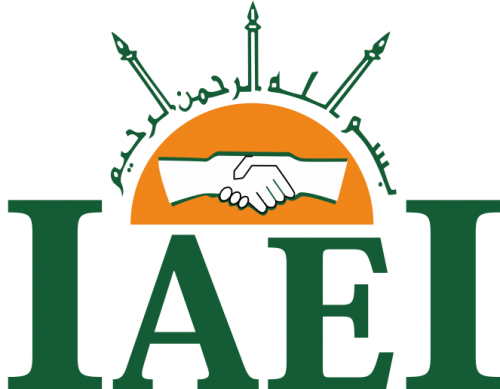The Role Of Personal Innovativeness On Behavioral Intention Waqf Online: Extention Of Technology Acceptance Model
DOI:
https://doi.org/10.26740/jekobi.v7n1.p1-17Keywords:
Waqf, Online Donation, TAM, Personal InnovativenessAbstract
This research examines the relationship between personal innovativeness and the Technology acceptance model (TAM) on behavioral intention to use online waqf services. This study uses an online questionnaire, using 100 wakif who have used online waqf services in Indonesia. The data from questionnaires were analyzed using the structural equation model least square. Results showed personal innovativeness also influenced perceived ease of use and perceived usefulness. This study aims to offer insights into enhancing the usability and utility of online waqf services within Nazir institutions. The focus is on providing for the needs of wakifs, particularly those with limited familiarity or comfort with technology. this study represents the initial attempt to include personal innovation within a model for assessing the acceptance of online waqf services. In digital marketing, a particular focus exists on examining the variables influencing individuals' behavioral intentions to utilize online services.
References
Ghozali, I., & Nasehudin, T. S. (2012). Metode penelitian kuantitatif. Pustaka Setia.
Hair, J. F., Harrison, D. E., & Risher, J. J. (2018). Marketing research in the 21st century: Opportunities and challenges. In Revista Brasileira de Marketing (Vol. 17, Issue 5). https://doi.org/10.5585/bjm.v17i5.4173
Ho, J. C., Wu, C. G., Lee, C. S., & Pham, T. T. T. (2020). Factors affecting the behavioral intention to adopt mobile banking: An international comparison. Technology in Society, 63(August), 101360. https://doi.org/10.1016/j.techsoc.2020.101360
Kurniawati, H. A., Arif, A., & Winarno, W. A. (2017). Analisis Minat Penggunaan Mobile Banking Dengan Pendekatan Technology Acceptance Model (TAM) Yang Telah Dimodifikasi. E-Journal Ekonomi Bisnis Dan Akuntansi, 4(1), 24. https://doi.org/10.19184/ejeba.v4i1.4563
Patil, P., Tamilmani, K., Rana, N. P., & Raghavan, V. (2020). Understanding consumer adoption of mobile payment in India: Extending Meta-UTAUT model with personal innovativeness, anxiety, trust, and grievance redressal. International Journal of Information Management, 54(February), 102144. https://doi.org/10.1016/j.ijinfomgt.2020.102144
Rafique, H., Almagrabi, A. O., Shamim, A., Anwar, F., & Bashir, A. K. (2020). Investigating the Acceptance of Mobile Library Applications with an Extended Technology Acceptance Model (TAM). Computers and Education, 145. https://doi.org/10.1016/j.compedu.2019.103732
Sukmana, R. (2020). Critical assessment of Islamic endowment funds (Waqf) literature: lesson for government and future directions. Heliyon, 6(10), e05074. https://doi.org/10.1016/j.heliyon.2020.e05074
Tang, Y., Wang, X., & Lu, P. (2014). Chinese consumer attitude and purchase intent towards green products. Asia-Pacific Journal of Business Administration, 6(2).
Zhang, Y., Tan, C. D., Sun, J., & Yang, Z. (2020). Why do people patronize donation-based crowdfunding platforms? An activity perspective of critical success factors. Computers in Human Behavior, 112. https://doi.org/10.1016/j.chb.2020.106470
Downloads
Published
How to Cite
Issue
Section
License
Copyright (c) 2024 Ayun Qolbi, Raditya Sukmana, Ririn Tri Ratnasari, Novi Sekar Sari

This work is licensed under a Creative Commons Attribution 4.0 International License.
This work is licensed under a Creative Commons Attribution 4.0 International License.
 Abstract views: 566
,
Abstract views: 566
, PDF Downloads: 724
PDF Downloads: 724














